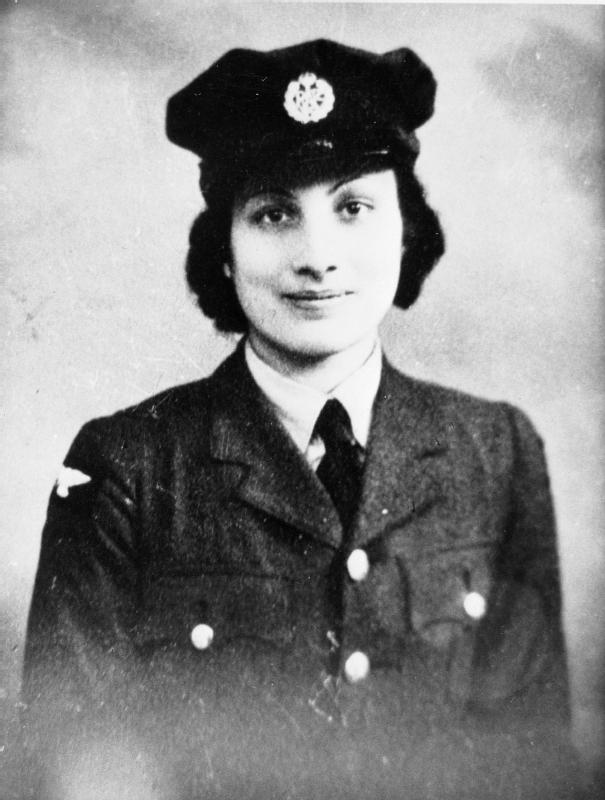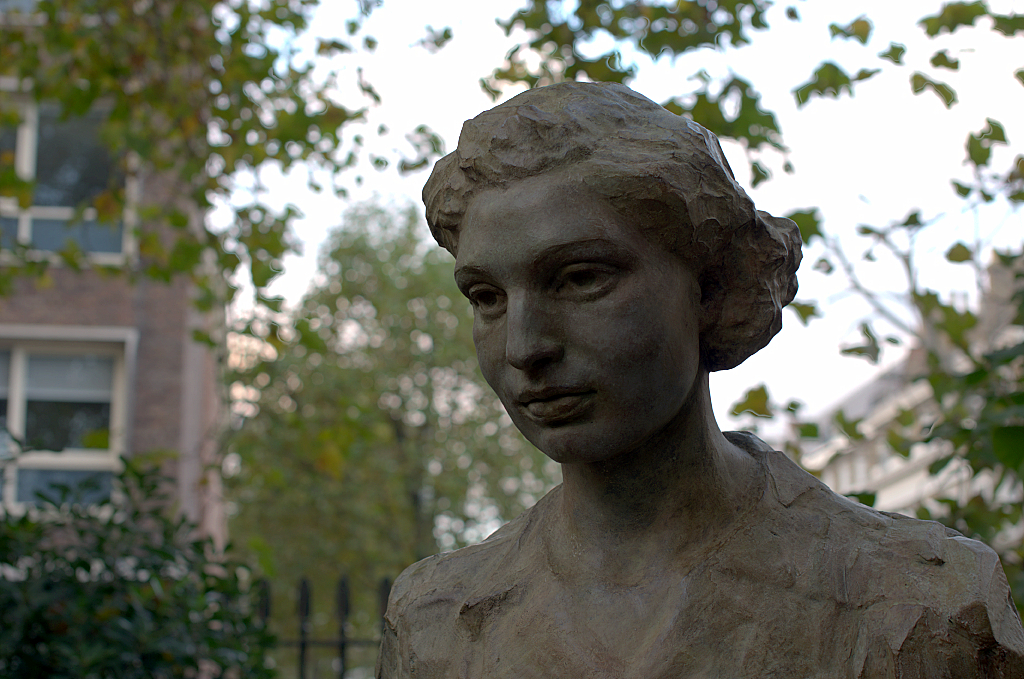Noor Inayat Khan was born on 1 January 1914 in Moscow, the daughter of an Indian father and an American mother. Shortly before the outbreak of the First World War, the trio moved to London, where her three siblings would be born, and then to Paris in 1920. After attending university to study child psychology and music, Khan began a career as a children’s writer in the city, but the start of the Second World War and the occupation of France forced Khan and her family to flee back to London.
In November 1940 Khan joined the Women’s Auxiliary Air Force but transferred to the Special Operations Executive (SOE)—which specialised in espionage and reconnaissance—in late 1942 and trained as a radio operator. Her fluency in French and her radio skills saw her be selected by the SOE to become the first female agent to be parachuted behind enemy lines in France in June 1943. At that time, it was expected that radio operators like Khan would last no more than two months before being captured.

Using a bulky radio set that was difficult to conceal and to use for extended periods without detection, Khan’s role was to maintain radio contact between Britain and a resistance network based in Paris fighting back against Nazi occupation. She posed as a children’s nurse and assumed the name Jeanne-Marie Renier but used the codename ‘Madeleine’ when communicating with the SOE. It was a reference to the name of a character in one of the stories she had written.
Khan hit a stumbling block just ten days after her arrival in Paris when mass arrests by the Gestapo—the Nazi secret police—left her as the only British agent in Paris. The SOE asked Khan to return to Britain, but she refused, wanting to try and keep communications going on her own.
She managed to do so for a further three months, flitting from place to place and regularly changing her appearance as she went. However, in October 1943 she was betrayed to the Gestapo and was arrested. Brought to their Paris headquarters, Khan managed to escape twice but was recaptured and transferred in November to the Pforzheim prison in Germany. She was kept in solitary confinement for ten months, chained up and tortured, but refused to reveal any information, not even her real name.
In September 1944 Khan was moved to the Dachau concentration camp, where she was shot and killed on 14 September. She was 30 years old.
Khan was posthumously awarded the Croix de Guerre in 1946 by the French and the George Cross in 1949 for her work behind enemy lines. Following a two-year campaign by her supporters, in 2012 she became the first—and so far only—Muslim woman to be honoured with a statue in the UK. The statue is in Bloomsbury, near to both the house where she lived as a child and the location of her SOE training.

Our new exhibition Top Secret: From Ciphers to Cyber Security (11 February – 5 June 2022) explores the fascinating world of codebreaking, ciphers and secret communications.
this is so bad😒😒
bad in what way? like what specifically abt this article r u calling bad and why